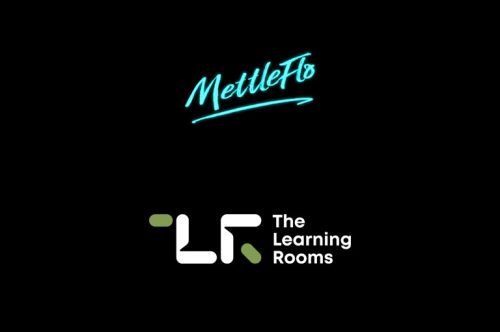What is eLearning? Simply put, it’s a flexible, efficient way to deliver education and training using digital technology. As remote and hybrid work environments become increasingly common, with CIPD reporting that 83% of organisations now have hybrid work arrangements, eLearning has transformed from a nice-to-have to an essential business strategy.
Learning in the Digital Age
Traditional tutor-based training, while effective, comes with inherent limitations. It requires participants to be physically present, adhere to rigid schedules, and often doesn’t effectively cater to diverse learning needs. In contrast, digital learning offers accessibility from anywhere with an internet connection, allowing learners to engage with content using devices they’re already comfortable with—laptops, tablets, or even smartphones.
Key Benefits That Drive eLearning Adoption
Modern organisations implement online learning for several compelling reasons:
- Flexibility and Accessibility: Learners can access training at their convenience, making it ideal for diverse and distributed teams.
- Cost-Effectiveness: No physical venue costs, printed materials, or travel expenses means significant savings compared to traditional training methods.
- Consistent Delivery: Everyone receives the same quality content, ensuring standardised knowledge transfer across your organisation.
- Scalability: Once developed, eLearning content can be delivered to unlimited learners without additional resource investment.
- Measurable Results: Digital platforms provide detailed analytics on learner progress, completion rates, and assessment performance.
Approaches to eLearning Development
Successful eLearning development requires thoughtful planning and implementation. Organisations typically consider these approaches:
- Bespoke eLearning Development: Custom-built solutions tailored to your specific organisational needs, branding, and objectives. Though more resource-intensive initially, bespoke solutions provide precisely targeted learning experiences.
- Rapid eLearning Development: Using templates and authoring tools to create content quickly and cost-effectively. Ideal for time-sensitive training needs or organisations with limited development resources.
- Off-the-shelf Courses: Pre-built courses on common topics like compliance, health and safety, or soft skills that can be deployed immediately. These provide quality content without development overhead, though customisation options may be limited.
- Building Your Own eLearning: Using authoring tools and learning design principles to develop in-house content. This approach gives you complete control over the learning journey whilst developing valuable internal capabilities, though it requires investment in tools, eLearning templates and upskilling your team.
eLearning without proper implementation is potentially a wasted investment. For maximum effectiveness, your online courses should consider all types of learner, incorporate engaging interactive elements, and align with your organisational goals.
Types of Learning Content for Workplace Training
The most common workplace eLearning applications include:
- Compliance Training: Ensuring employees understand regulations and company policies.
- Onboarding: Introducing new hires to your organisation’s culture, systems, and processes.
- Technical Skills: Training specific job-related skills and software applications.
- Professional Development: Supporting career growth and leadership capabilities.
- Health and Safety: Providing essential workplace safety information.
Starting Your eLearning Journey
When implementing eLearning for the first time, consider these essential factors:
- Secure Stakeholder Buy-in: Communicate the benefits across all levels of your organisation.
- Choose the Right Platform: Select a Learning Management System (LMS) that aligns with your specific needs.
- Create Relevant Content: Develop material that directly addresses your learners’ needs and challenges.
- Measure and Refine: Use analytics to continuously improve your eLearning offerings.
What is the future of digital learning? As technologies like AI and adaptive learning mature, we can expect even more personalised learning experiences. Smart organisations are already investing in eLearning development to stay competitive in an increasingly digital workplace.
By talking to us now, you position your organisation to adapt quickly to changing conditions while providing your team with flexible, engaging professional development opportunities.








